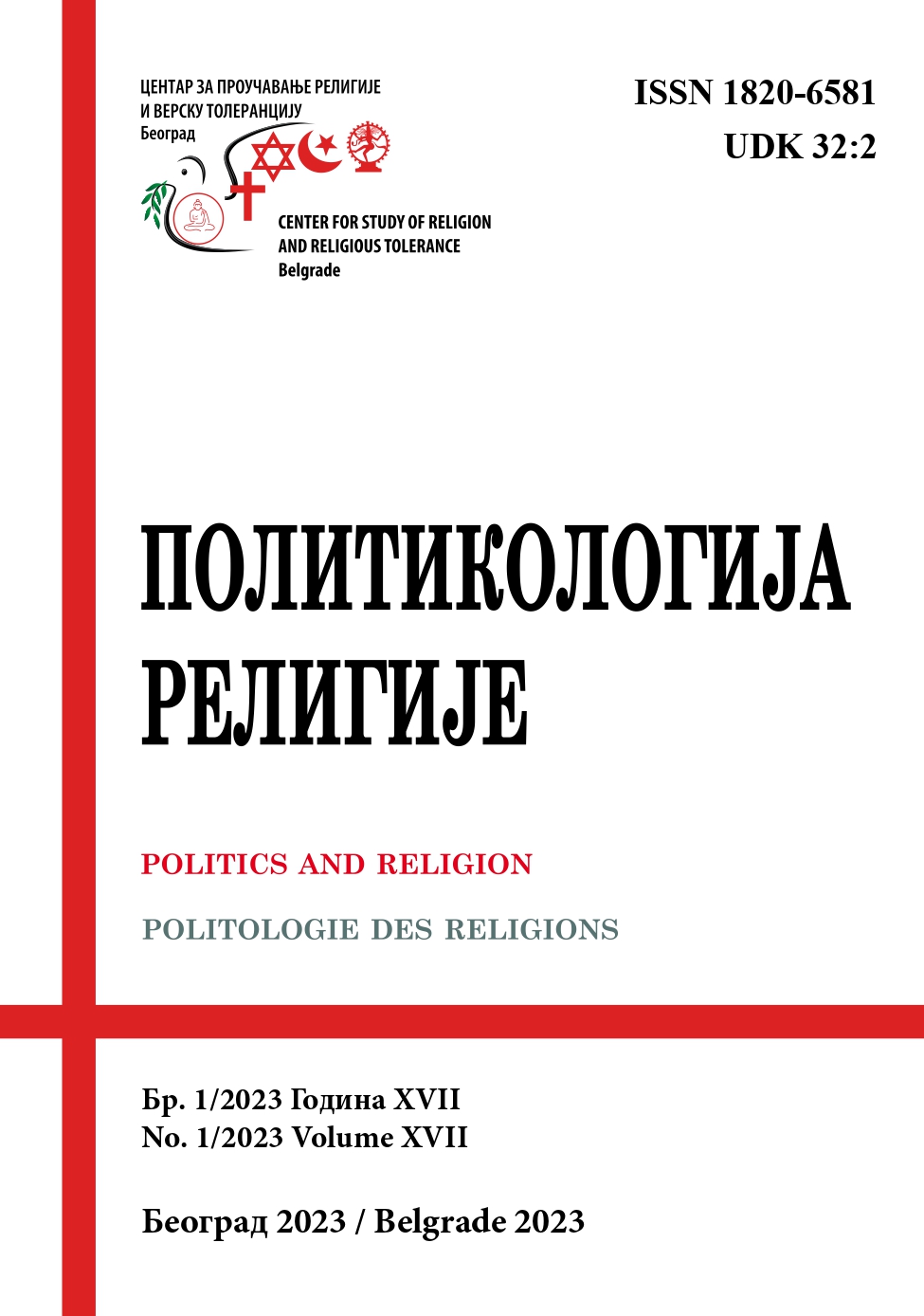JAHILIYYAH RHETORIC AS A DIVINE LEGITIMACY FOR VIOLENCE: A STUDY OF THE INFLUENCE OF SAYYID QUTB AND THE CONTEMPORARY ISLAMIST ORTHODOXY ONAL-QAEDA, THE TALIBAN, AND THE ISLAMIC STATE
JAHILIYYAH RHETORIC AS A DIVINE LEGITIMACY FOR VIOLENCE: A STUDY OF THE INFLUENCE OF SAYYID QUTB AND THE CONTEMPORARY ISLAMIST ORTHODOXY ONAL-QAEDA, THE TALIBAN, AND THE ISLAMIC STATE
Author(s): Mohammad KhalidSubject(s): Social Sciences, Sociology, Theology and Religion, Islam studies, Studies in violence and power
Published by: Центар за проучавање религије и верску толеранцију
Keywords: Islamism; religious violence; Islamist orthodoxy; Jihad; Muslim extremism; Jahiliyyah
Summary/Abstract: The Islamic conception of Jahiliyyah brings together the three most debated Muslim militant organizations of our times, namely Al-Qaeda, the Islamic State, and the Taliban in terms of their justification for violence. It is discussed here that despite significant differences in their political agendas, social and cultural motives as well as religious denominational affiliations, the three organizations are hegemonic in their resort to the notion of Jahiliyyah while opposing the non-Shari’ah based political rule. They converge on the idea that there is an imperative to install a system based on Shari’ah and that any actors opposed to this can be treated as enemies, deviants, and infidels, hence, worthy of violent aggression. It is demonstrated here that this particular connotation of Jahiliyyah was essentially espoused in the works of Sayyid Qutb, one of the most influential twentieth century proponents of Islamism and global Jihad. Although developed primarily to denounce Western imperialists in a postcolonial context, one may see Jahiliyyah as a contemporary Islamic rhetoric for providing the three organizations in question, valid pretexts to wage armed insurgencies against whoever they view as hostile political forces. This overall narrative, as this study indicates, relates to the broader contemporary Islamist discourse on the legitimacy of political violence in the name of religion.
Journal: Политикологија религије
- Issue Year: XVII/2023
- Issue No: 1
- Page Range: 69-87
- Page Count: 19
- Language: English

